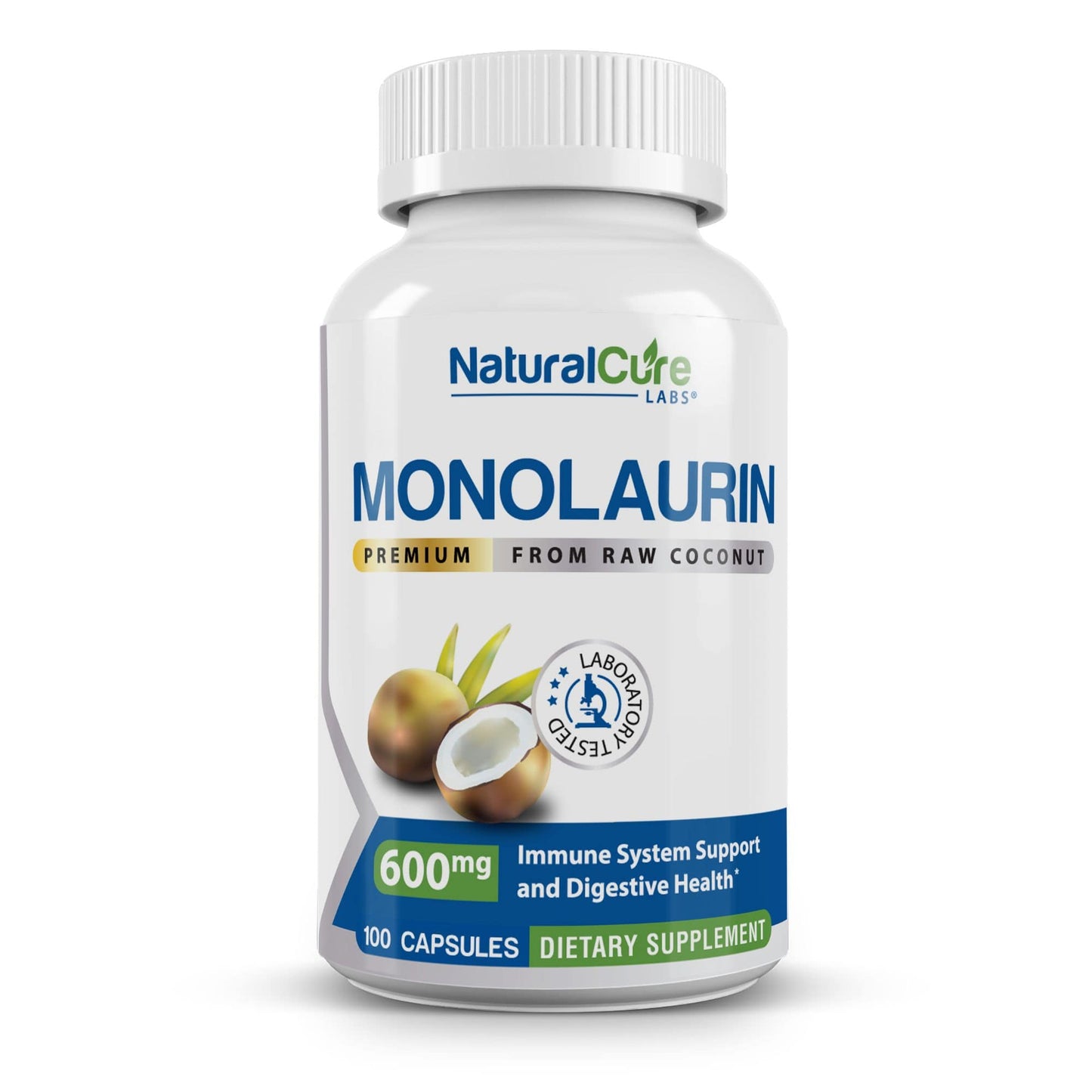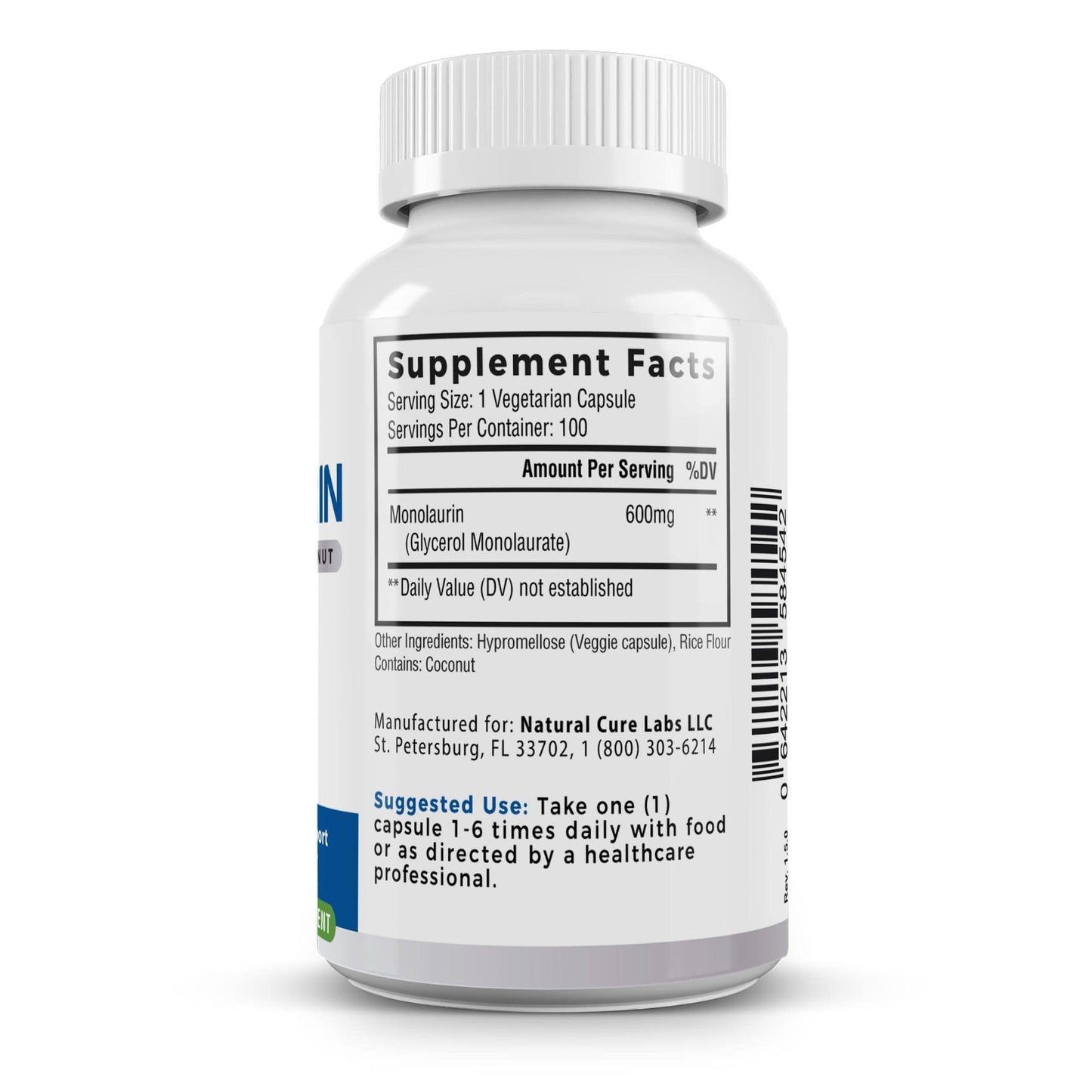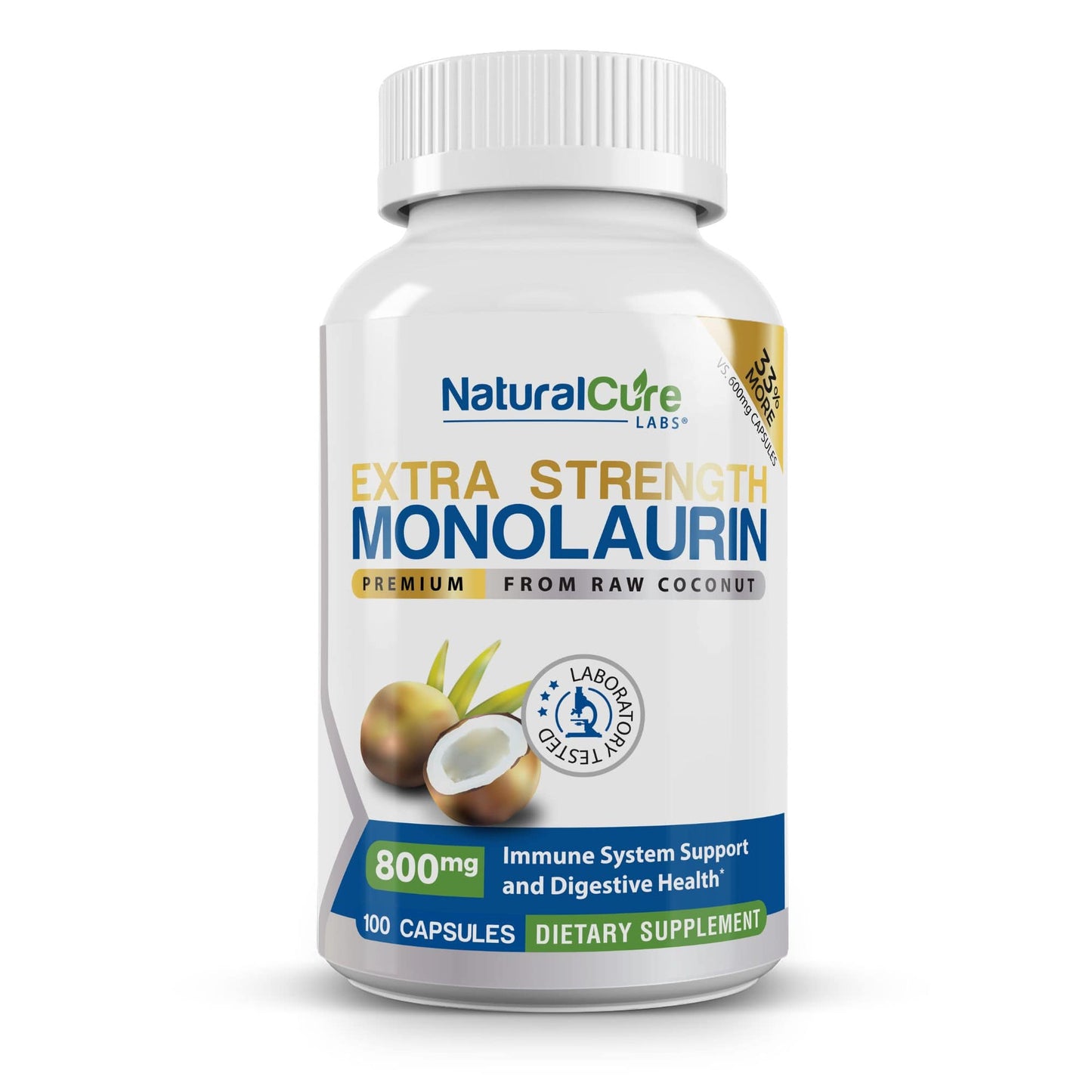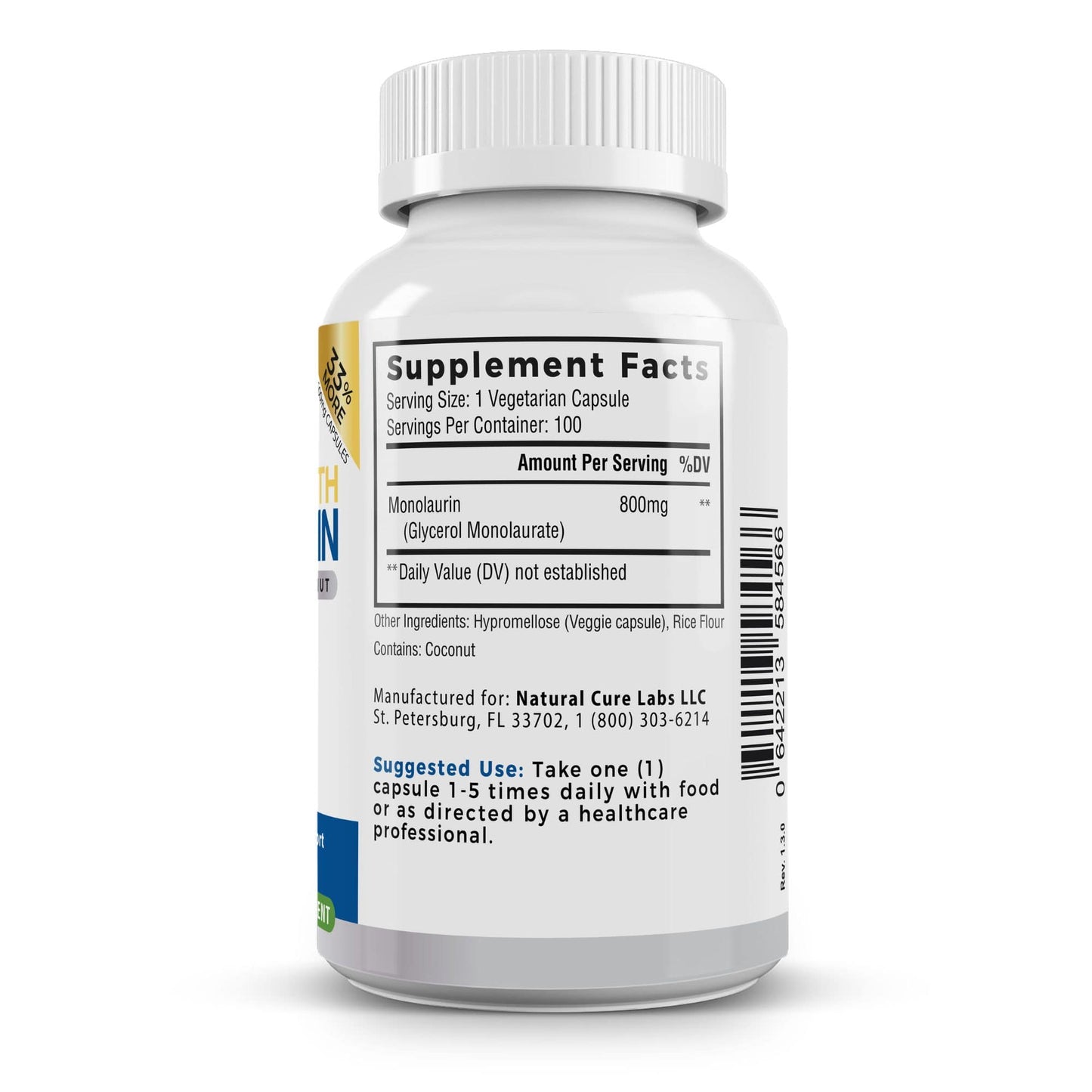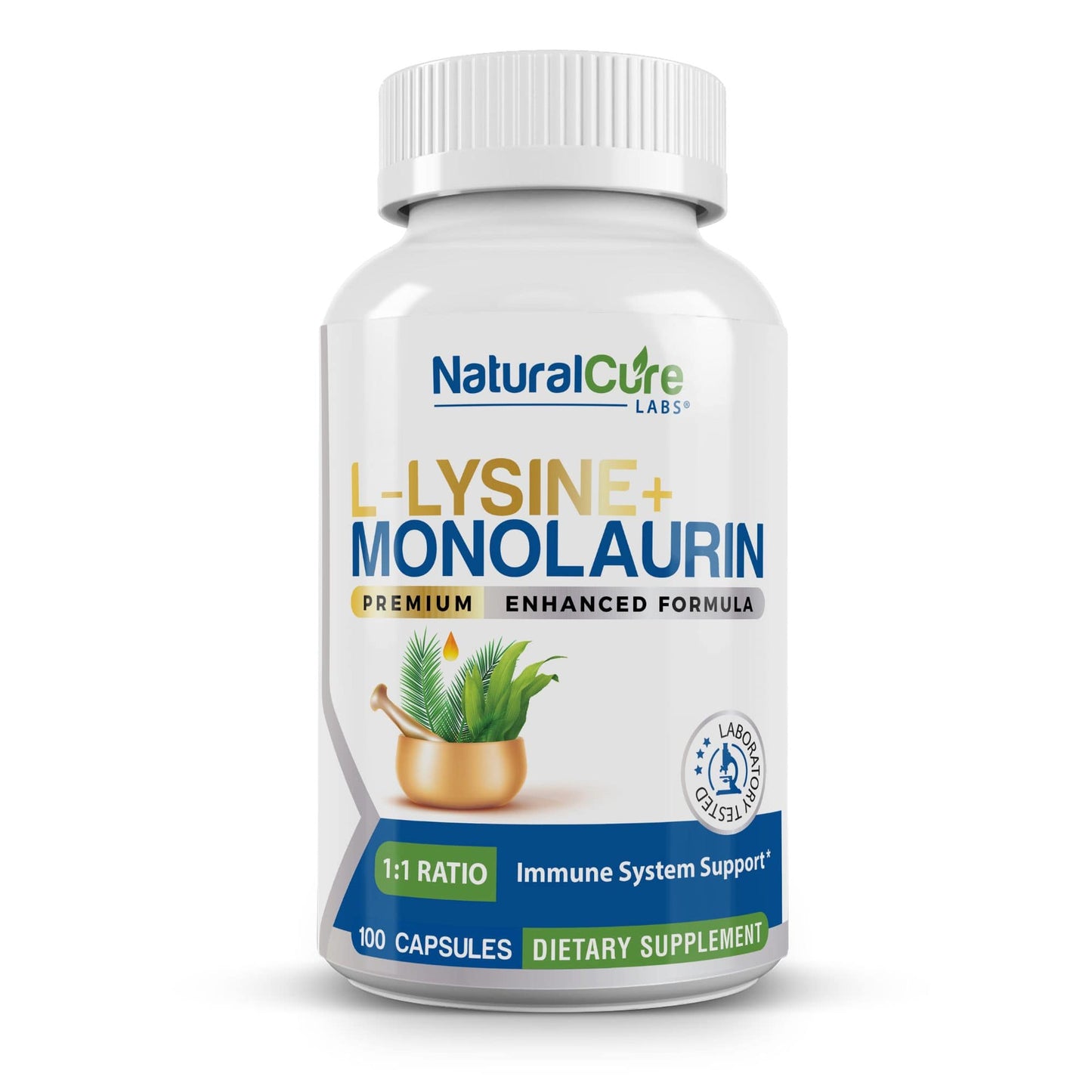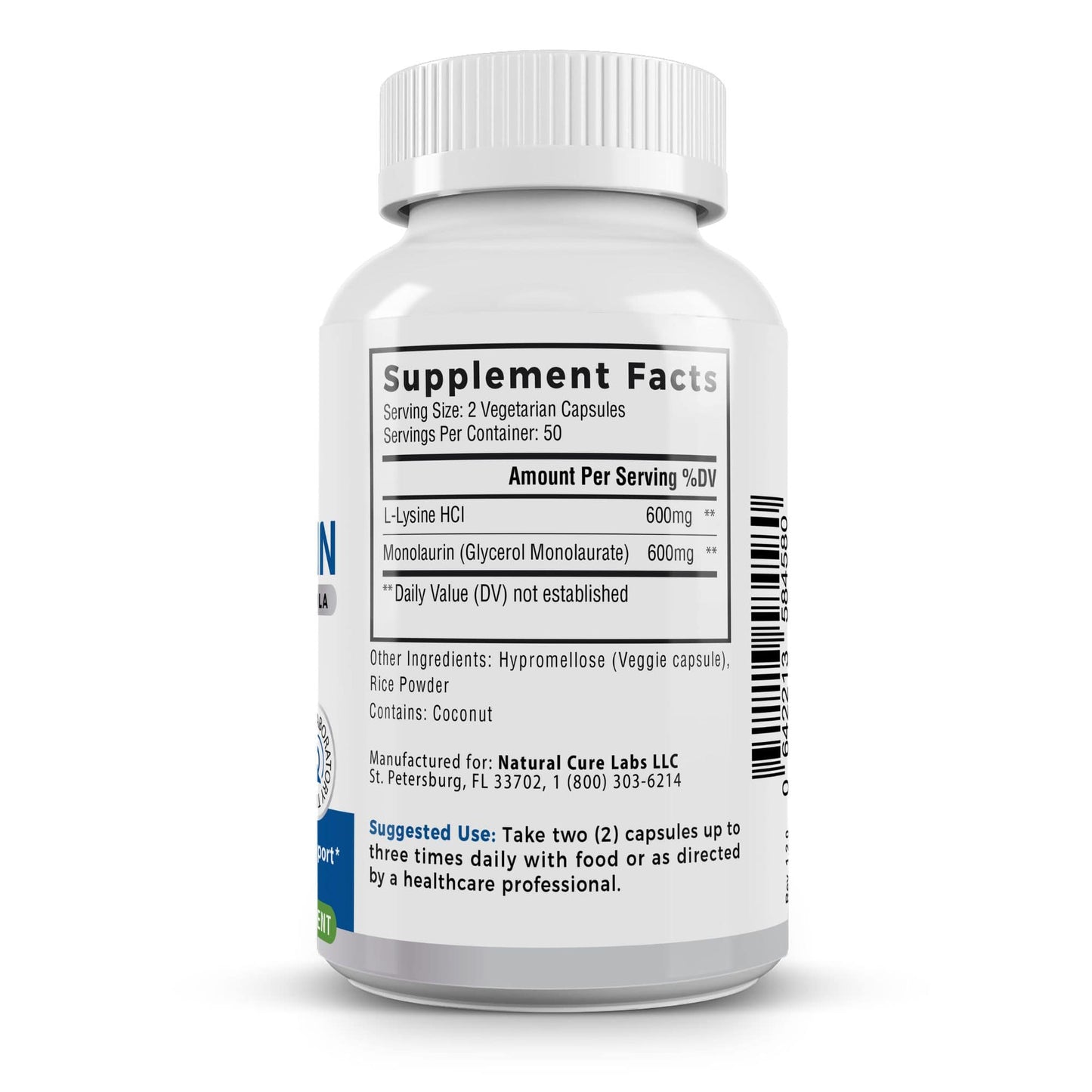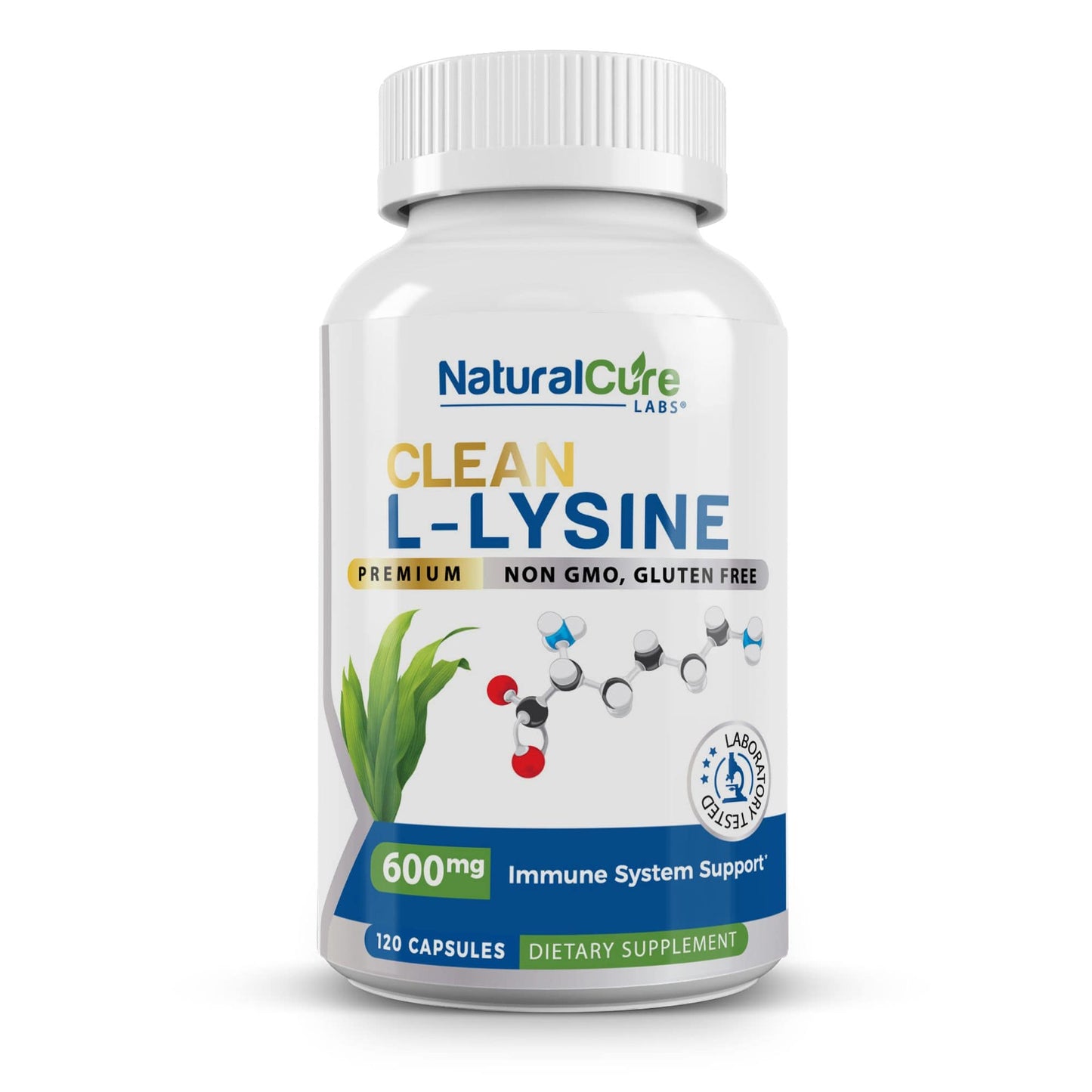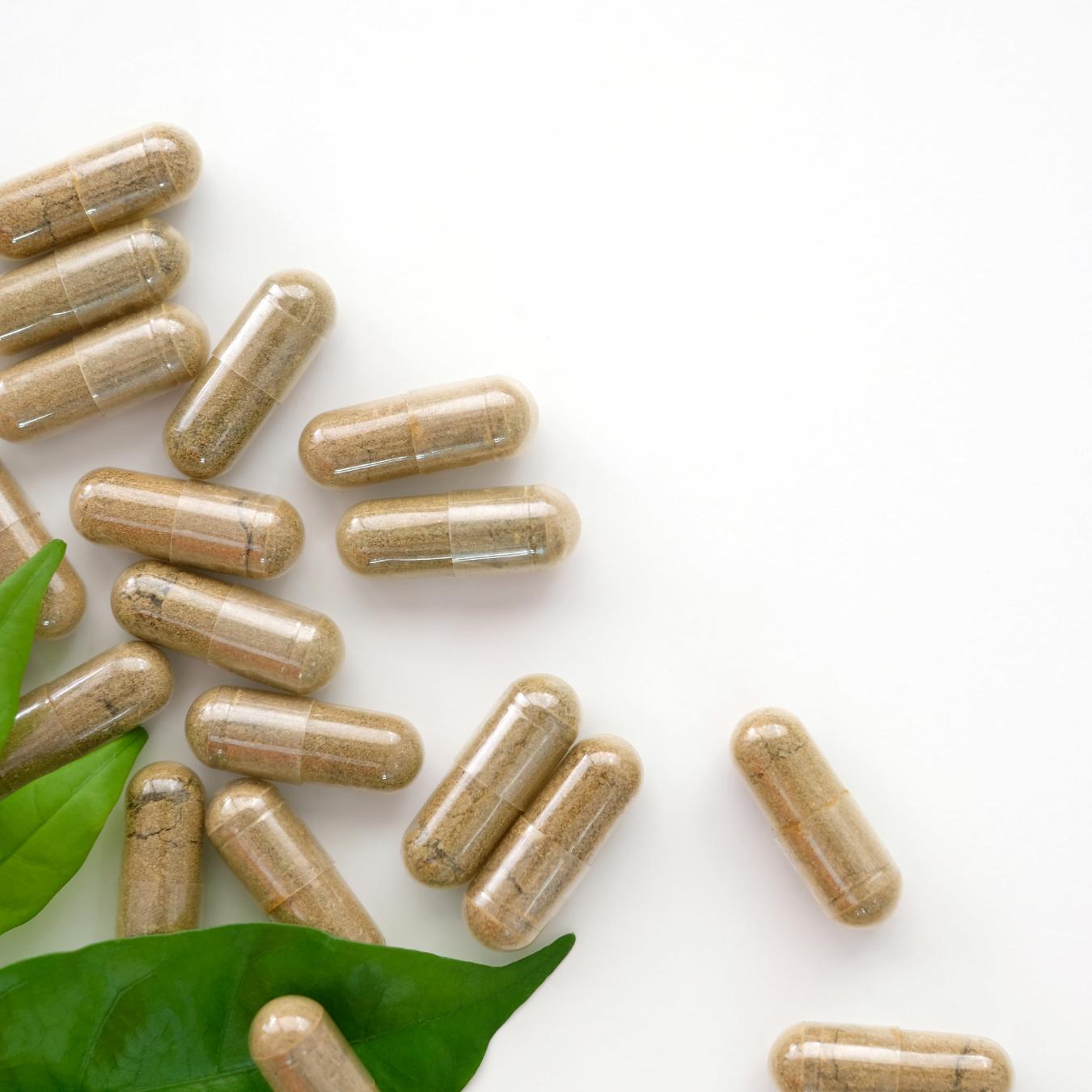
📝 Medically reviewed by Dr. Patricia Shelton
🔍 Last updated May 6, 2024
📚 17 citations
📖 7 minute read
About the Author:

Dr. Patricia Shelton, MD, has been a medical communicator and educator since 2014. She holds a Doctor of Medicine degree and a Bachelor's degree in Neuroscience, both from the University of Washington in Seattle.
--
48% of Americans are concerned about their gut health. ¹ Your gut is at the center of it all, playing a vital role in immune function, digestion, and overall well-being. ²
If you're worried about the state of your stomach, it's important to prioritize healthy living habits. Whether you eat probiotic-packed foods or take monolaurin-based supplements each morning, there are a few ways to support your gut health. ‡
Jump To:
- What is Gut Health?
- What is the Gut Microbiome, And Why is it Important?
- 6 Ways to Support a Healthy Gut
- Final Thoughts
- References
Keep reading, and we'll tell you more.
See Related: 7 Foods To Boost Your Immune System
What is Gut Health?
Gut health is a comprehensive term that refers to the overall health, balance, and function of the gastrointestinal system. This complex system is comprised of the digestive tract, including the stomach, small intestine, and large intestine (colon), along with billions of microorganisms (bacteria, fungi, and viruses).
This community of microorganisms is known as the gut microbiome. There’s still a lot for researchers to learn about the gut microbiome, but it’s known to have a huge impact on your health. These microorganisms help you digest food, influence your immune system function, protect you against infections, and even secrete substances that influence your mental health.
The term "gut health" can be considered rather abstract, meaning different things to different people. But in general, having a healthy gut means your gut microbiome is balanced, and you aren’t experiencing uncomfortable digestive symptoms.
Maintaining good gut health involves several factors. These include consuming fiber-rich foods, eating probiotics, staying hydrated, managing stress levels, and getting good sleep. When it comes down to it, a healthy gut is at the center of wellness, as it influences digestion, immunity, and more. ² ³
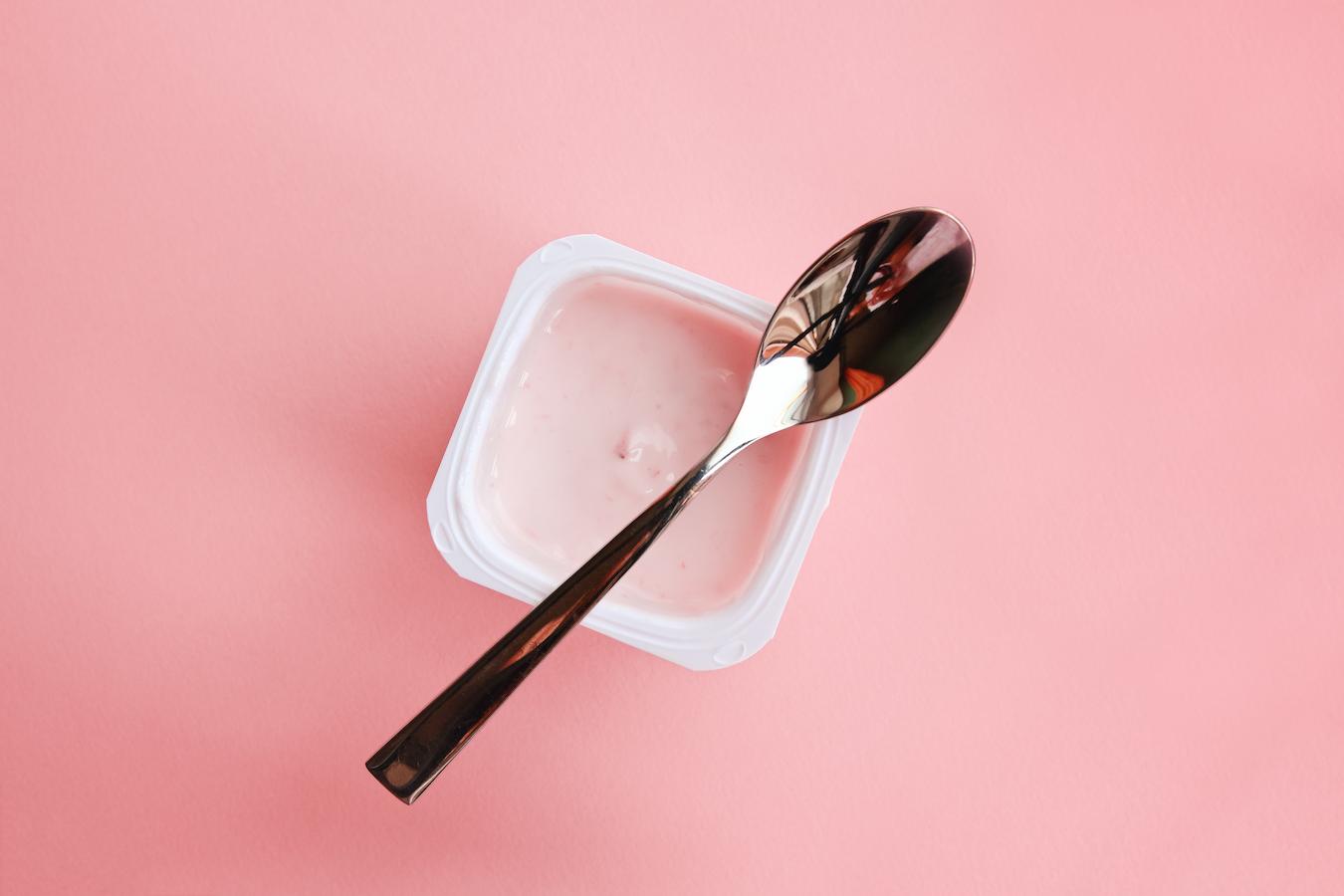
What is the Gut Microbiome, And Why is it Important?
If "gut health" is the foundation of overall health, then the gut microbiome is at its core. The gut microbiome includes an extensive variety of microorganisms. About 200 different species of bacteria, viruses, and fungi live in the human digestive tract. ⁴
Though some of these microorganisms can be detrimental, many of them are beneficial and even necessary for the body. These healthy microorganisms are referred to as "good bacteria." Research shows that a diverse gut microbiome can support overall health and wellness. ⁵
There is an abundance of evidence that points to a link between gut health and the immune system, mental health, cardiovascular health, and the digestive system. ² ⁶ ⁷ ⁸ Simply put, a healthy, balanced gut may support your overall well-being.
6 Ways to Support a Healthy Gut
Through positive lifestyle and diet changes, you may be able to support and improve your gut health. Even if you struggle with poor gut health, you may be able to find natural remedies that work well for you.
#1. Take Daily Health Supplements
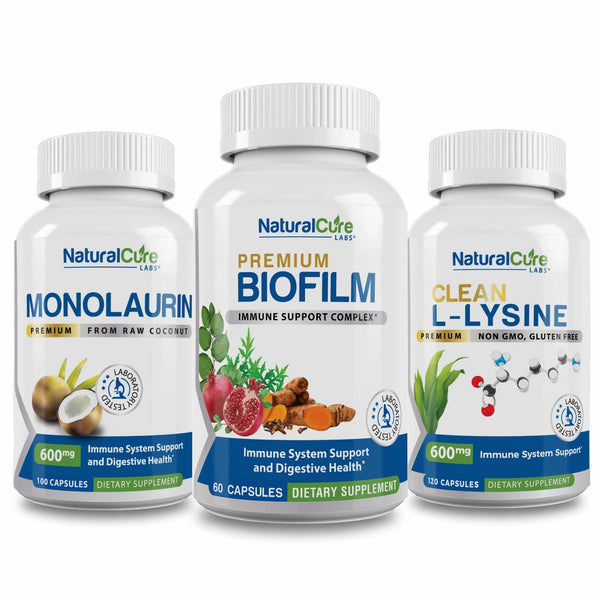
It can be challenging to obtain all your necessary nutrients through diet alone. That's why health supplements can be a great complement if you want to keep your gut healthy naturally. ‡
This Digestive Health Bundle from Natural Cure Labs features three clean-label supplements made with premium botanicals that support the immune system and digestive health. The combined synergistic effects of these capsules promote a healthy gut microbiome and a strong immune system. Including best-selling Monolaurin, Clean L-Lysine, and a Biofilm Complex, this pack provides three quality products backed by award-winning formulas and published research. ‡
#2. Manage Stress Levels
Chronically high stress levels can be harmful to your overall health and gut microbiota. Stress activates the release of cortisol, a hormone that can affect the overall function of the gastrointestinal tract. When cortisol levels rise, the flow of blood and oxygen to the stomach can be decreased. This hormone can also disbalance the amounts of harmful and beneficial gut bacteria. ⁹

Bonus: What Are Lymph Nodes And What Do They Do?
#3. Eat Foods Rich in Prebiotics
Foods like garlic, onions, asparagus, or bananas contain prebiotics, a type of indigestible fiber that supports the good bacteria in the gut. After passing through the digestive system, prebiotics reach the colon, where your gut bacteria use them for energy. Some prebiotics are broken down into short-chain fatty acids like butyrate, acetate, and propionate. These fatty acids appear to have a number of health benefits, including immune system regulation, promoting a healthy body weight, and protecting the brain from degeneration. ¹⁰ ¹¹ ¹⁶
#4. Eat Probiotic Foods and Fermented Foods
Probiotics, or healthy bacteria, also live in fermented foods and certain dairy products. Yogurt, kefir, kimchi, and some types of cheeses can supply your body with helpful probiotics. These live "good" bacteria help support a diverse microbiome, which can promote healthy digestion, immune function, and overall well-being. ¹² ¹³
#5. Eat Healthy Foods and Chew Slowly
In addition to a diet rich in prebiotics and probiotics, it's a good idea to generally eat healthy foods. Fruits, vegetables, whole grains, and lean proteins supply your body with the nutrients, vitamins, and antioxidants needed to support a diverse gut microbiome. It's also a good idea to cut back on ultra-processed foods, refined sugars, and high-fat foods. These foods have been shown to shift the balance of bacteria in the microbiome, increasing the number of bacterial species that promote inflammation and chronic diseases.¹⁷
Consuming food slowly and intentionally can help reduce digestive discomfort and even improve mental health. Try to eat slowly, chewing your food thoroughly and mindfully. ¹⁴
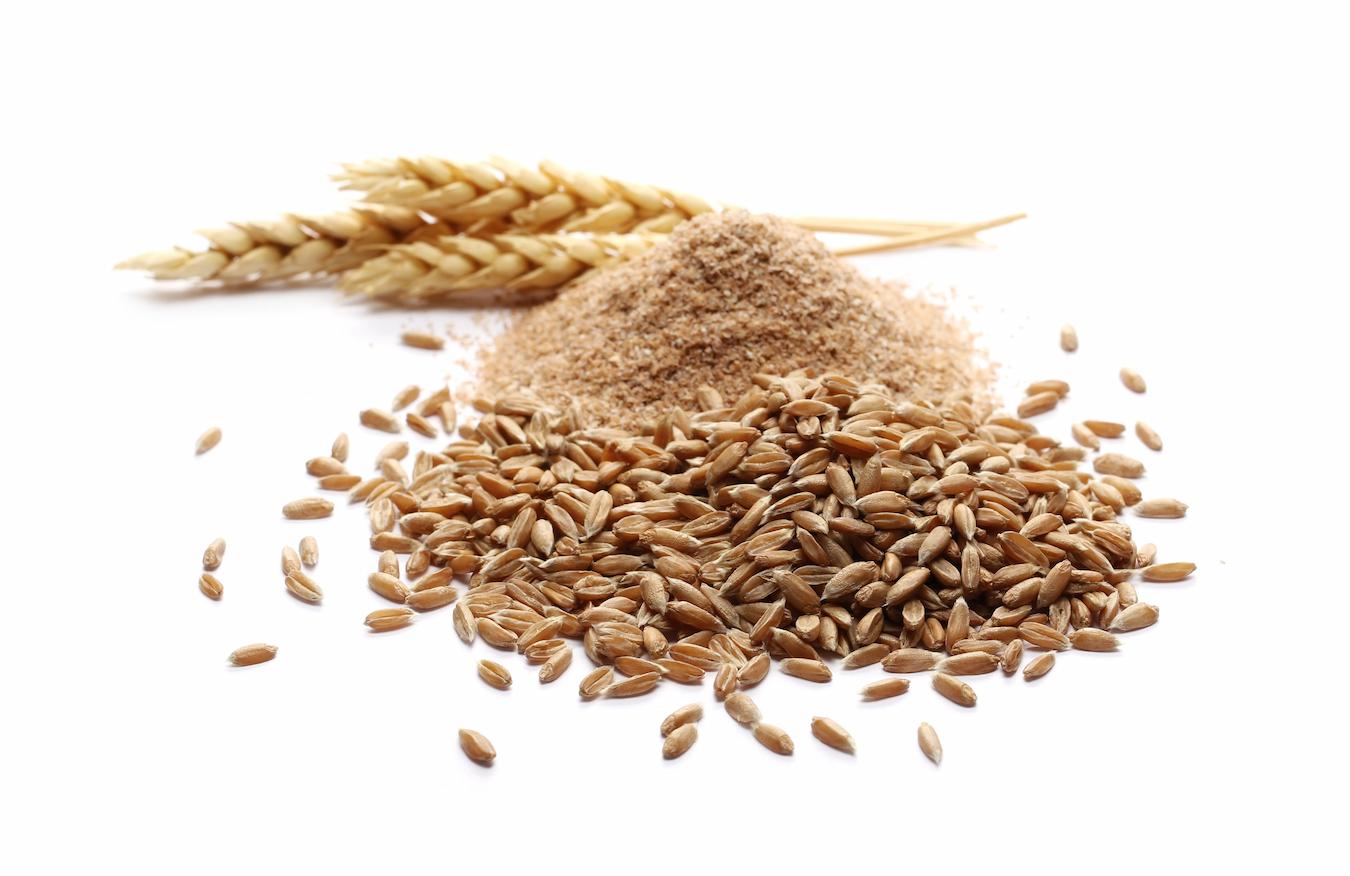
#6. Stay Hydrated
Drinking plenty of water throughout the day has been shown to support a healthy microbiome and the beneficial bacteria in the gut. This seemingly simple practice promotes proper digestion, helps the gut absorb nutrients, and maintains proper gut mobility. ¹⁵
Final Thoughts
Healthy lifestyle choices may help to support gut microbiome diversity and healthy digestion. Whether you choose to take immune-supporting supplements or cut back on ultra-processed foods, there are many ways to improve your gut health naturally. ‡
Keep Reading: The Top 10 Health Benefits Of Coconut Oil
--
References
- Ipsos. (2023). PUBLIC POLL FINDINGS AND METHODOLOGY: Most Americans are uninformed about gut health and the microbiome. Retrieved April 24, 2024, from https://www.ipsos.com/sites/default/files/ct/news/documents/2023-05/MDVIP%20-%20Gut%20Health%20Key%20Findings%20May%202023_0.pdf
- Wu, H. J., & Wu, E. (2012). The role of gut microbiota in immune homeostasis and autoimmunity. Gut microbes, 3(1), 4–14. https://doi.org/10.4161/gmic.19320
- Quigley E. M. (2013). Gut bacteria in health and disease. Gastroenterology & hepatology, 9(9), 560–569.
- Hills, R. D., Jr, Pontefract, B. A., Mishcon, H. R., Black, C. A., Sutton, S. C., & Theberge, C. R. (2019). Gut Microbiome: Profound Implications for Diet and Disease. Nutrients, 11(7), 1613. https://doi.org/10.3390/nu11071613
- Valdes, A. M., Walter, J., Segal, E., & Spector, T. D. (2018). Role of the gut microbiota in nutrition and health. BMJ (Clinical research ed.), 361, k2179. https://doi.org/10.1136/bmj.k2179
- Xiong, R. G., Li, J., Cheng, J., Zhou, D. D., Wu, S. X., Huang, S. Y., Saimaiti, A., Yang, Z. J., Gan, R. Y., & Li, H. B. (2023). The Role of Gut Microbiota in Anxiety, Depression, and Other Mental Disorders as Well as the Protective Effects of Dietary Components. Nutrients, 15(14), 3258. https://doi.org/10.3390/nu15143258
- Tang, W. H., Kitai, T., & Hazen, S. L. (2017). Gut Microbiota in Cardiovascular Health and Disease. Circulation research, 120(7), 1183–1196. https://doi.org/10.1161/CIRCRESAHA.117.309715
- Bull, M. J., & Plummer, N. T. (2014). Part 1: The Human Gut Microbiome in Health and Disease. Integrative medicine (Encinitas, Calif.), 13(6), 17–22.
- Madison, A., & Kiecolt-Glaser, J. K. (2019). Stress, depression, diet, and the gut microbiota: human-bacteria interactions at the core of psychoneuroimmunology and nutrition. Current opinion in behavioral sciences, 28, 105–110. https://doi.org/10.1016/j.cobeha.2019.01.011
- Holscher H. D. (2017). Dietary fiber and prebiotics and the gastrointestinal microbiota. Gut microbes, 8(2), 172–184. https://doi.org/10.1080/19490976.2017.1290756
- Fernandez, J., Redondo-Blanco, S., Gutierrez-del-Rio, I., Miguelez, E. M., Villar, C. J., & Lombo, F. (2006). Colon microbiota fermentation of dietary prebiotics towards short-chain fatty acids and their roles as anti-inflammatory and antitumour agents: A review. Journal of Functional Foods, Vol. 25, August 2016, pgs. 511-522. https://doi.org/10.1016/j.jff.2016.06.032
- Wang, X., Zhang, P., & Zhang, X. (2021). Probiotics Regulate Gut Microbiota: An Effective Method to Improve Immunity. Molecules (Basel, Switzerland), 26(19), 6076. https://doi.org/10.3390/molecules26196076
- Stiemsma, L. T., Nakamura, R. E., Nguyen, J. G., & Michels, K. B. (2020). Does Consumption of Fermented Foods Modify the Human Gut Microbiota?. The Journal of nutrition, 150(7), 1680–1692. https://doi.org/10.1093/jn/nxaa077
- Cherpak C. E. (2019). Mindful Eating: A Review Of How The Stress-Digestion-Mindfulness Triad May Modulate And Improve Gastrointestinal And Digestive Function. Integrative medicine (Encinitas, Calif.), 18(4), 48–53.
- Vanhaecke, T., Bretin, O., Poirel, M., & Tap, J. (2022). Drinking Water Source and Intake Are Associated with Distinct Gut Microbiota Signatures in US and UK Populations. The Journal of nutrition, 152(1), 171–182. https://doi.org/10.1093/jn/nxab312
- R.G. Xiong, Zhou D.D., et al. (2022). Health Benefits and Side Effects of Short-Chain Fatty Acids. Foods, 11(18), 2863. doi: 10.3390/foods11182863
- Shi, Z. (2019). Gut Microbiota: An Important Link between Western Diet and Chronic Diseases. Nutrients, 11(10), 2287. doi: 10.3390/nu11102287
‡ These statements have not been evaluated by the Food and Drug Administration. This product is not intended to diagnose, treat, cure, or prevent any disease.
--
Natural Cure Labs provides dietary supplements made from naturally derived ingredients. Our research-backed products contain premium botanicals and antioxidants that encourage healthy living and holistic wellness. Each high-quality product comes with a Clean Label that certifies our commitment to quality, transparency, and research. To stay connected and learn more, follow us on Facebook, Instagram, and TikTok.

